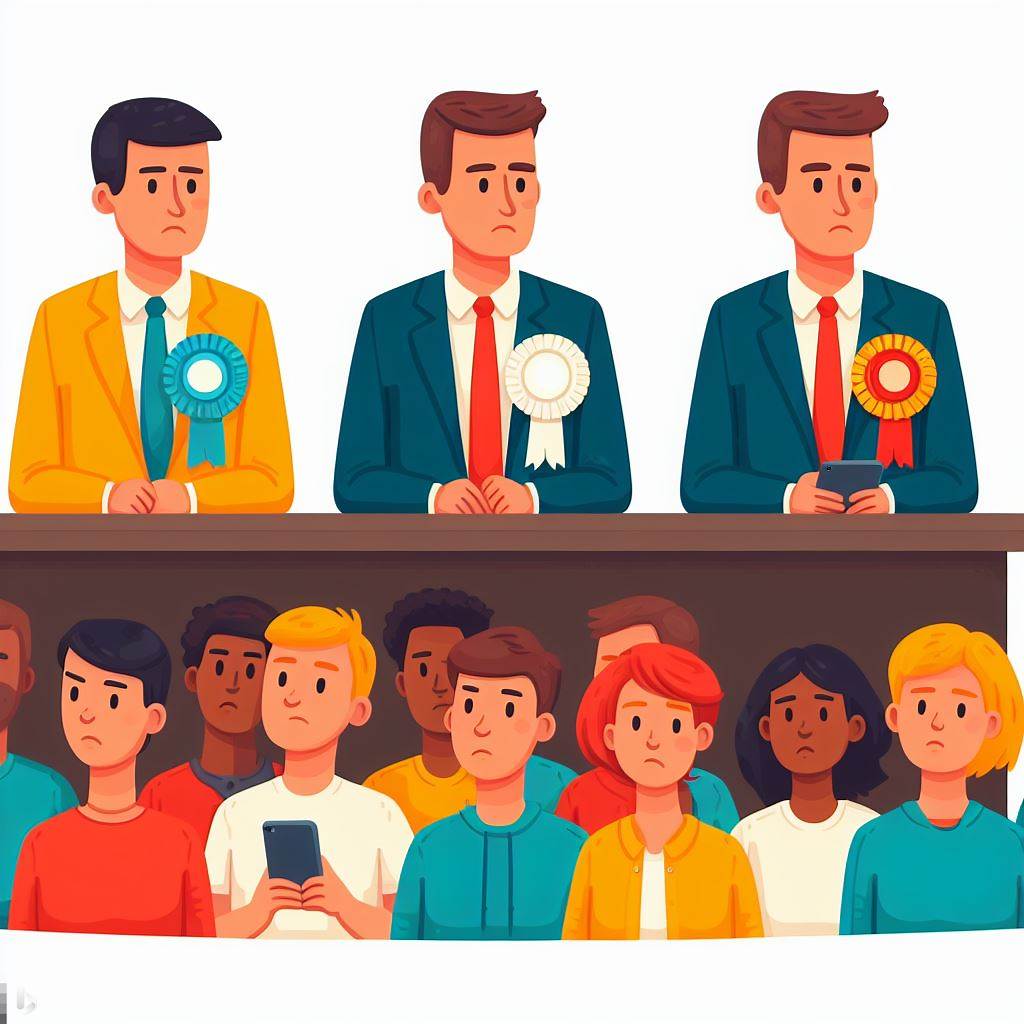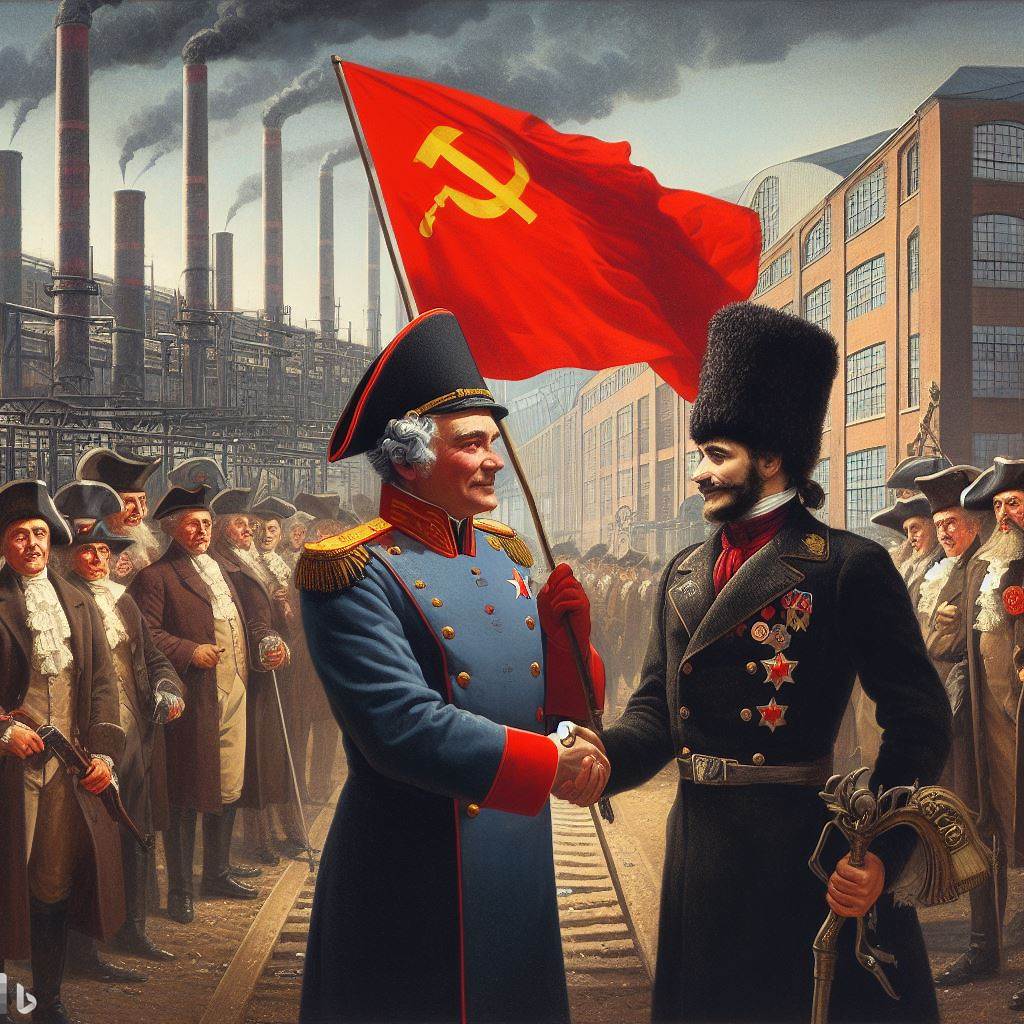In defence of political apathy (Part 2)
SUGGESTED



Eco-militancy
Over the past five years, we have seen the rise of a militant eco-movement, or rather, a series of overlapping movements: the Greta movement, Extinction Rebellion, Insulate Britain, Just Stop Oil, and various smaller spin-offs. These movements are not entirely new: they have indirect predecessors. But in terms of mass engagement, the current ones are clearly on a different scale.
A lot of the people involved in these movements are very young, which is why opinion formers, terrified of seeming “out of touch”, have been reluctant to criticise them. The conventional opinion is that while one can disagree with these movements’ tactics, surely, it can only be a good thing that so many young people care so passionately about the planet. And who could disagree with that?
Me, that’s who.
The strange thing about these movements is that they were set up at least a decade after their cause had already been won. The Climate Change Act 2008, which was a slightly less stringent version of the current Net Zero agenda, was adopted with near-unanimity: only 5 MPs voted against it. Since then, consumption-based CO2 emissions per capita have fallen by 40% (although probably not specifically because of the Climate Change Act, but because of measures already adopted prior to it). This is a steep drop both relative to its past trajectory, and to the EU-27 average (which the UK now slightly undercuts).
Environmentalist campaigners are obviously entitled to take the view that that is still not good enough. But you cannot reasonably claim that this is nothing. Yet this is precisely what the current eco-movement does. This is a movement which will not take “Yes” for an answer. No matter what any government does, and no matter how fast emissions are falling, the next day, the spokespeople of this movement will be back on TV, insisting that this is all just “Blah blah blah” and “greenwashing”, and that nothing is being done.
However, the reason why emissions are not falling even faster is not that we are not aware of climate change, or that we are not taking it seriously, or that the government does not want to do anything about it. The reason is that decarbonisation is very expensive. There is an undeniable trade-off between decarbonisation and living standards. Of course we want to reduce carbon emissions, but most of us also value other things.
The challenge for environmental policy is not to “do more”, but to find ways of making these trade-offs less unpleasant by finding more cost-effective ways of getting carbon out of our production processes. To that effort, the current eco-movement contributes precisely nothing. They simply deny the existence of trade-offs, and instead, catastrophise, hystericise and hyper-moralise the issue.
This movement provides no benefits to anyone, but it imposes real costs on a lot of people, for example by blocking busy roads, or diverting police resources.
“What’s your alternative?”, I hear you say, “Are you seriously suggesting that we’d be better off if these young people just stopped caring, and went back home?”
To which my answer is yes. Yes, I am saying precisely that.
The Culture War
Last but not least, there is, of course, the all-consuming Culture War.
Again, this is not an entirely new phenomenon. There were already a lot of complaints about “Social Justice Warriors” ten years ago, or about “the PC brigade” before that. But there has been a step change in scale, and participation. Prof Matt Goodwin from the University of Kent has collected data on the frequency with which particular words are mentioned in the British media. He shows how at some point from around 2013 or 2014 on, there has been an explosion in the frequency of words like “racism”, “white supremacy”, “transphobia”, “Islamophobia” and “patriarchy”. This is not because Britain has, in an obvious way, become more racist, more white-supremacist, more transphobic, more Islamophobic or more patriarchal since then. Rather, it is a reflection of a social trend that has become known as “the Great Awokening”.
Ten years ago, stories about the excesses of Wokery were usually centred on university campuses. Today, we talk about corporate wokery, and the Wokery of the public sector, the charitable sector, the entertainment industry, and so on. Wokery has metastasised, and become all-pervasive.
But why is it a problem if more people care more passionately about social justice and oppression?
The problem is that woke progressivism, whatever its protagonists may tell themselves, is not about helping allegedly oppressed, sacralised victim groups. It is about signalling one’s own social status and imaginary moral superiority. But status and moral superiority are inherently relative. You can only be morally superior if there is someone who is morally inferior. Therefore, if you are woke, you constantly need to find reasons to police, problematise, stigmatise and criminalise other people’s opinions.
That is why Wokery is so often needlessly confrontational. It is why woke progressive so often misrepresent their opponents’ viewpoints, and wrongly stigmatise people as “racists”, “fascists”, “transphobes”, “Islamophobes” etc. The woke need enemies. And when they don’t have any, they will manufacture them.
It is also the reason why they will never be satisfied. I am currently reading a book called How Woke Won by Joanna Williams (review forthcoming), which is an intriguing title, because it raises an obvious question: if the woke side has indeed won – why are we still talking about a Culture War? When one side wins, doesn’t this normally mean that the war is over?
But this is, of course, not how the woke-led Culture War works. It is not meant to be over. Woke progressives signal their social status by getting conspicuously outraged about something someone somewhere said. They don’t want to stop doing this. They are never going to conclude that their efforts to reeducate society have gone far enough, that society is now sufficiently woke, and that the social problems they care about have been resolved. They can win individual battles, but whenever that happens, they will immediately move on to the next cause. The Culture War is toxic and destructive, and this could not be otherwise.
Conclusion
After the experience of Brexit, Corbynism, hardcore environmentalism and endless Culture Wars – can anyone seriously claim that Britain is a happier place than it used to be when people cared less about politics? Can anyone seriously claim that politicising large sections of society has improved political decisionmaking?
In hindsight, Britain’s old anti-politics cynicism, expressed in platitudes like “It doesn’t matter who you vote for, they’re all the same anyway” or “None of them have our interests at heart, they’re all just in it for themselves”, had its upsides. It created an us-vs-them spirit, in which most people were part of the “us”. That strikes me as healthier than a situation in which large sections of the electorate turn against each other.
Politics is mostly a zero-sum game. If two or more groups have incompatible goals, only one of them can win. One side’s victory is another side’s defeat. Being heavily emotionally invested in political causes therefore inevitably means conflict, confrontation, and for at least one side, anger, disappointment, frustration, bitterness, and resentment. That’s why there’s something to be said for indifference.
“Hold on”, I hear you say, “you haven’t actually shown that mass political engagement is a bad thing. All you’ve shown is that excessive tribalism, and basing one’s identity around political opinions, is a bad thing. That doesn’t mean that all political activism is bad!”
And you would be right. Maybe real mass political engagement has never been tried. But at least in the examples described above, tribalism and identity-signalling are not bad by-products of political engagement that you could easily do away with. Rather, they are what boosted political engagement to such high levels in the first place. Take those away, and you are left with not very much.
But given where we are now, I think “not very much” would be a huge improvement.
3 thoughts on “In defence of political apathy (Part 2)”
Comments are closed.





Given where we are now, I agree. But would you agree that the mass political movements after the second world war (possibly more in Germany than the UK) led to the creation of a set of institutions that oversaw remarkable economic development (even if you would have preferred something more free market)?
Philip,
I’m sure there are such examples, but the West German post-war economic miracle isn’t one of them (if that’s what you were referring to). Ordoliberalism was the project of a tiny group of economists, very much the opposite of a mass movement. It only became widely accepted when it was clearly showing results.
that’s interesting. I suppose I am thinking about the widespread party membership of the time (certainly in the UK Conservative party – though often as a social concept), but presumably also in Christian Democrats in Germany as well as the mass labour movements (that were reasonably moderate in Germany). That mass political engagement by reasonable people presumably was a bulwark against communism